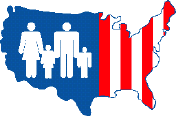 |
Americans Against Unfair Family Taxation |
| AAUFT Privacy Policy |
D
ETROIT FREE PRESSJuly 11, 1999
The federal death tax deserves to have a funeral of its own
BY RON DZWONKOWSKI
IT IS TRUE that nobody escapes death or taxes. But why should one make the other worse?
It is happening more and more, another one of those unintended by-products of the strong economy. People are accumulating wealth, and once those assets top $650,000 -- not such a mountain any more, when you add up real estate, the value of a small business in, say, software, and a 401(k) retirement plan -- they are subject to a big federal tax bite at death, up to 55 percent.
Now the dead don't care. That's how these taxes get enacted in the first place. It's the heirs who get the bill, often as a shock, payable in cash to Uncle Sam nine months after the death.
Congress has been hearing more stories lately about how the "death tax" has forced children to sell the family farm after their parents die, so they can pay the taxes and hopefully have enough of a remainder to buy a smaller spread; or of business owners selling off the company rather than leaving it for the children, because they know estate taxes will eat up the profits for years.
Small town officials are lamenting the loss of family-owned stores, because estate taxes have left the second-generation owners unable to compete profitably with the Wal-Mart on the edge of town; children are selling inherited art or furnishings so they can pay the taxes on their value.
Then, too, you have people who are just spending themselves silly, knowing that half of what they leave behind is likely to end up in Washington. (Michigan erased its sliding-scale inheritance tax in 1993 in favor of an estate tax based on the federal "death tax" obligation.)
Congress has been getting a lot more complaints about the death tax as American wealth piles up and the projected budget surplus grows and grows. Estate taxes raise about $25 billion a year, which sounds like a lot, but is only about 1 percent of a federal budget that's running well in the black.
What's more, the Joint Economic Committee of Congress, in a report last year, said the Internal Revenue Service spends about as much money enforcing the estate tax as the tax brings in; the committee also concluded that the tax may be costing the government money because it discourages savings and investment, and because it motivates the best-heeled taxpayers to go to great and complex lengths with lawyers and accountants to shelter their assets.
The committee even said the estate tax was an environmental problem, because families have been forced to surrender large, sensitive tracts for development so they can meet tax obligations on inherited property.
This week, the House Ways and Means Committee will take up one of several bills to phase out estate taxes as part of an $800-billion tax-cut package. next week, the Senate ponders a bill to change the death tax to a capital gains tax of 20 percent that would kick in only after inherited assets are sold.
If no action is taken, the only change on the horizon is a gradual increase in the portion of estates exempt from the "death tax" to $1 million by 2007.
The arguments for the tax are moral and philosophical, dating back to the 1900s when Congress didn't want great wealth being concentrated in a few families, seeing no value in an idle American aristocracy. It also enabled government to get at wealth that had grown without being taxed much. In 1916, the tax was dedicated to national emergencies and was used to pay for World War I. During World War II, the tax generated nearly 10 percent of the federal budget.
Through it all, the very rich -- the Rockefellers, Fords, Kennedys, etc. -- seem to have stayed that way. But lately, the garden-variety rich have paid a heavy price for trying to do well by their children. One study found that 70 percent of family-owned businesses do not survive a second generation, and 87 percent are gone by the third.
This has been particularly onerous for African Americans, who are 14 percent of the population but hold only 1.2 percent of the country's net worth; the "death tax" has made it hard for blacks who do well to leave an economic legacy that translates into real empowerment, said Harry Alford, head of the National Black Chamber of Commerce.
"Civil rights and political clout are nice, but economic empowerment will get you freedom and authority," he said. "We cannot begin to build wealth until we start to recycle our precious dollars."
The bottom line here is a tax that doesn't contribute much to the government and penalizes too many people, who, as President Bill Clinton likes to say, "work hard and play by the rules."
Seems like it's time to change the rules.
Ron Dzwonkowski is editor of the Free press editorial page. you can call him at 313-222-6635, or write him in care of the Free Press editorial page, or via e-mail at dzwonk@freepress.com .